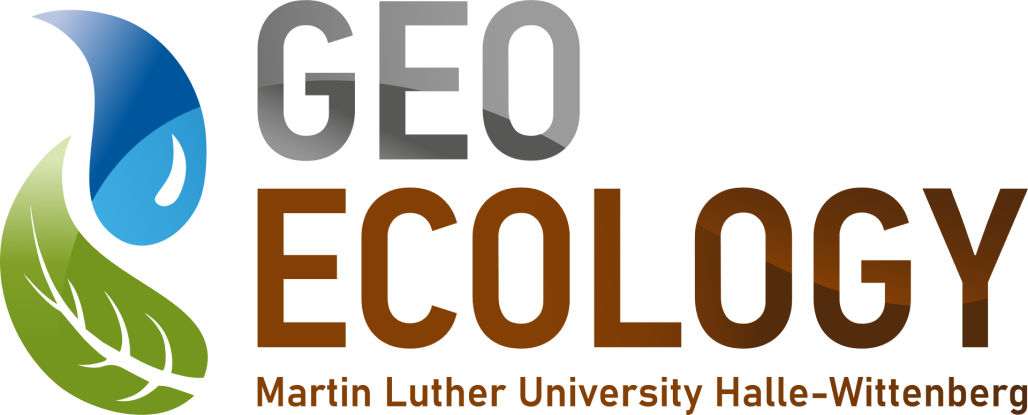The “SMART Agroforestry” project aims to use digital tools to realise the added value of agroforestry systems (AFS) at farm and landscape level in southern Saxony-Anhalt. Strengthening agroforestry systems and their value chains in the region promotes sustainable and climate-resilient land management and forms an economically significant basis for the production of bio-based raw materials, for example for the chemical industry in Central Germany. With innovative research on digitalisation and bioeconomy with a focus on lignocellulosic streams, the proposed project aims to address key problem areas for the necessary structural change.
Project lead:
Team:
- Dr. Mike Teucher
Project partners:
- MLU Halle Nachhaltige Landschaftsentwicklung
- MLU Halle Informatik
- Nordwestdeutsche forstliche Versuchsanstalt (NW-FVA)
- Gesellschaft zur Förderung von Medizin-, Bio- und Umwelttechnologien e.V. (GMBU)
- Deutsche Landwirtschafts-Gesellschaft (DLG) Kompetenzzentrum Landwirtschaft
- GISA GmbH
- UPM Biochemical GmbH Leuna
- Deutsches Biomasseforschungszentrum (DBFZ), Bereich Bioenergiesysteme
- Fraunhofer Institut für Mikrostruktur von Werkstoffen und Systemen (IMWS) Gruppe Nachhaltige Werkstoffe und Prozesse
Background and objectives:
As part of the Central German arid region, southern Saxony-Anhalt is one of the areas with the lowest precipitation in Germany with a climatic water balance that is particularly unfavourable for groundwater recharge. The predicted climate changes mean that the risk of drought stress and heavy rainfall events will increase in equal measure in the region, which is characterised by arable farming. Here, agroforestry represents an alternative land use system whose ecological benefits can counteract the effects of climate change. These include, in particular, evaporation and erosion control, carbon accumulation in the soil and the provision of diverse habitats. Not only in vulnerable locations can these ecosystem services strengthened by agroforestry also bring economic benefits such as higher average yields or lower yield fluctuations in arable use.
Modern agroforestry systems (AFS) currently play a subordinate role in the region, which is dominated by high-quality arable land. In Saxony-Anhalt, for example, around 260 ha of short-rotation coppice (SRC, with a lot of poplar and willow) are currently cultivated with an estimated annual timber yield of 7-15 tonnes/ha, depending on the species and location.
Subgoals:
Development of a digital tree and land cadastre using innovative geo-remote sensing methods to estimate potential sources and ecological benefits
Development of a product and process database for utilisation paths of lignocellulosic raw materials from AFS
Development of decision support tools for various stakeholders in AFS-based value creation networks (e.g. site-specific wood selection, capacity planning)
Development of an information platform “SMART Agroforestry” as a central coordination tool for all stakeholders in AFS-based value networks
Utilisation of digital tools and networking of stakeholders along the value chain to develop and strengthen cooperative management concepts
Methodological approach:
The project is divided into three project areas that largely build on each other and consist of interlinked work packages.
SMART Agroforst begins with extensive potential analyses of agroforestry production in southern Saxony-Anhalt and material-chemical utilisation as well as documentation of the results in databases with a view to realising industrially relevant material flows from agroforestry systems (AFS). The second area aims to develop solutions for realising the production of industrial material flows through agroforestry systems (AFS) at the landscape level. The databases on production and utilisation as well as the developed planning tools form the basis for a multi-perspective determination of implementation potentials for agroforestry systems (AFS), the evaluation of their ecological and economic benefits, as well as a concretisation of implementation paths (e.g. cooperative approaches) in the agricultural landscape of southern Saxony-Anhalt.
Expected results:
SMART Agroforestry aims to analyse potential comprehensively. Linking the methods developed in the process, for example for data collection and optimisation, as well as the broad knowledge base compiled, will be integrated prototypically for sub-areas and stakeholder groups, not least through the SMART Agroforst information system to be developed. This lays the foundation for a multi-perspective system for various stakeholders in the field of AFS-based value creation networks and, in addition to the prospects of economic success, for the first time a common platform for planning and monitoring projects for authorities/agencies, landowners and utilisers of AFS. This gives all stakeholders involved a shared view of AFS in South Saxony-Anhalt and a common database and information base. This breaks down communication and understanding barriers and offers great potential for synergetic use in the cultivation and management of AFS with an increase in AFS in the regions and the associated positive effects on increasing the region’s climate resilience. In order to roll this out from a prototype to the entire region, obstacles, opportunities and risks will be determined in this project phase and political funding opportunities will be identified and communicated. At the same time, the results of the spatial and material-chemical analysis provide the potential for the actual industrial utilisation of wood resources in southern Saxony-Anhalt.
If successful, this conglomerate, in co-operation with the decision-makers in the state of Saxony-Anhalt, provides the basis for a genuine transfer into practice that is relevant against the background of the structural change funding objective.
